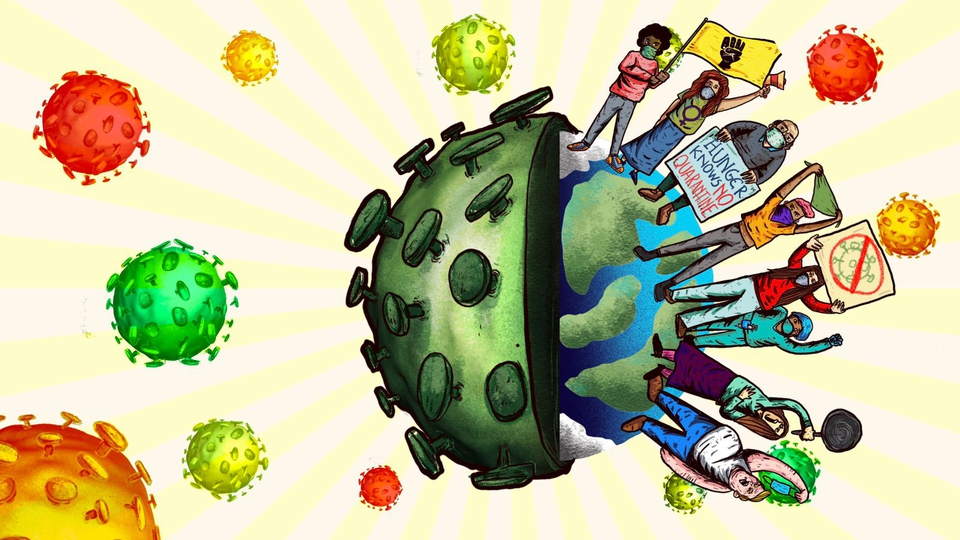FREEDOM OF PEACEFUL ASSEMBLY AND THE COVID-19 PANDEMIC: A SNAPSHOT OF PROTESTS AND RESTRICTIONS
The CIVICUS Monitor is producing periodic research on the state of civil liberties during the COVID-19 pandemic. This is the fourth instalment which provides a snapshot of trends and case studies related to the right to freedom of peaceful assembly.
"Peaceful assembly is a fundamental right, and protests offer an incredibly powerful and successful means of advocating for and defending other vital rights. The power of this right was shown during the pandemic as people continued to take to the streets in all regions of the world. While the COVID-19 pandemic has further challenged and threatened the right to peaceful assembly, people continued to take to the streets to voice their concerns related to COVID-19 and demand other important rights.
Since March 2020 when COVID-19 was declared a pandemic, governments around the world imposed strict lockdowns, with public assemblies banned or limited. International human rights law makes clear that while limitations on rights are permissible during a health emergency, these limitations have to be necessary, proportionate, non-discriminatory and in place for a limited period of time. However, as highlighted in CIVICUS’s 2020 report People Power Under Attack, some governments have gone beyond this and used the pandemic as a pretext to further restrict civic freedoms. The United Nations (UN) Special Rapporteur on the Rights to Freedom of Peaceful Assembly and of Association, Clement Voule, warned that the pandemic must not be used as a pretext to suppress rights in general or the rights to the freedoms of peaceful assembly and association in particular.
Restrictions on public gatherings during the pandemic initially brought some mass protest movements to a halt. This was seen in countries including Chile, Czech Republic, India and Lebanon. In some countries, including Hungary, Italy, Palestine and Singapore, movements adapted and people began staging solo and socially distanced protests, including protests on their balconies and through online platforms, including social media. However, after some time, many people returned to the streets to protest during the pandemic, driven at times by concerns related directly to the pandemic and often also to express urgent demands related to fundamental rights.
The pandemic has exposed and further worsened global inequalities. Correspondingly, many of the protests that took place during the pandemic, as documented by the CIVICUS Monitor, highlighted the prevalence of social and economic inequalities.
This brief covers civic space developments related to the right to the freedom of peaceful assembly in the context of COVID-19 from the period February 2020 to January 2021. It is compiled from data from our civic space updates prepared by activists and partners on the ground. We examine the types of protests that were staged during the pandemic and the restrictions on the right to the freedom of peaceful assembly."
Follow the link to read more about how freedom of assembly has been impacted in the context of COVID-19 across different states across the globe.
